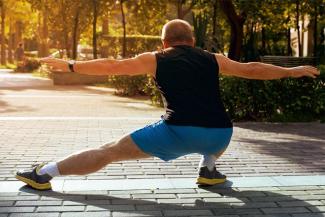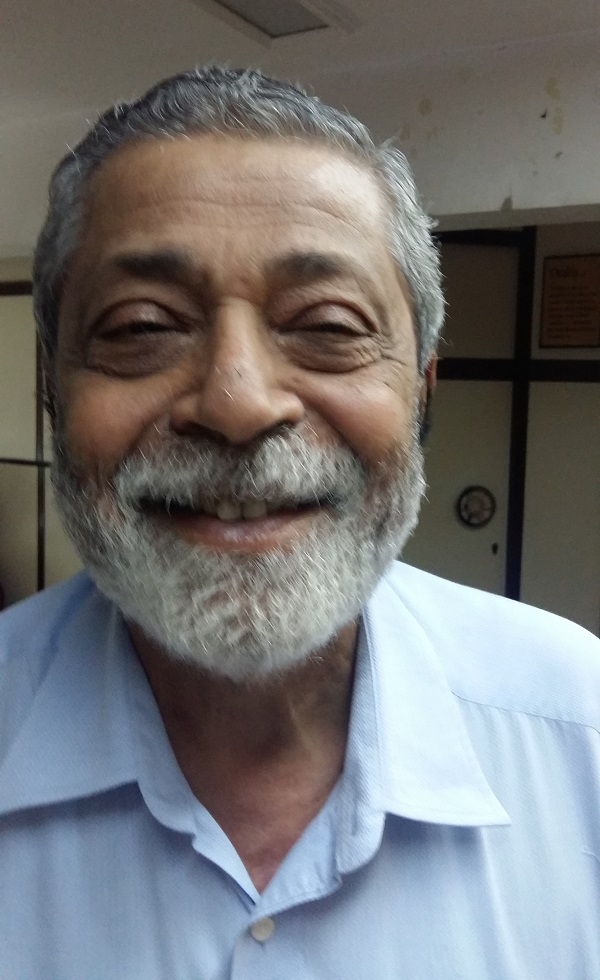
Cardiac rehabilitation is extremely beneficial and life-changing for strengthening the heart post-surgery, valve replacement or heart failure. Mr Shrikant Shah, 71, recounts his experience with the cardiac rehab program and how he can climb stairs now without running out of breath.
I am a heart patient of many years. I have a history of cardiovascular diseases in our family. Recently, after a heart attack I had a bypass surgery and aortic valve replacement, a minimally invasive procedure. Before that, I had 2 stents placed in 2008.
After my bypass, I was strongly recommended, or rather prescribed, cardiac rehabilitation by my team of doctors. Cardiac rehabilitation is essentially a program to strengthen your heart if you have had a heart attack, angioplasty or heart surgery.
My cardiac rehab centre was at H.N. Reliance Hospital. The exercise entailed yoga once a week and cardio three times.
- Warm up - 5 to 7 minutes
- Cycling – 18 minutes
- Treadmill – 20 to 25 minutes
- Elliptical – 4 to 5 minutes
I was also advised a session every month with a nutritionist and a psychiatrist, both of which I did not attend. After 3 months, there were no follow ups with cardiac rehabilitation. However, I visit my cardiologist and surgeon every 6 months to ensure my heart is in good shape.
The rehab program has helped me tremendously get my energy and life back. Earlier, I would find it difficult to walk for more than 10 minutes, or I would be out of breath climbing stairs. But now I don’t feel weak; I can do all daily my chores. I can even climb stairs without gasping, though slowly, . Initially, I would not look forward to the rehab exercises, but later on I began enjoying them.
The cardiac rehabilitation program is great on the whole, but there are challenges and difficulties to overcome.
- Family members are tremendously inconvenienced
- Economic setback incurred due to cost of program
- Constant wishes for good health are very demoralizing and sometimes annoying
Having going through the difficult phase myself, my advice to other patients facing similar challenges is that-
- Do not let the operation scare you. Medical science has advanced to a great extent and risks have reduced considerably.
- Ensure you take all steps to remain healthy to prevent a similar episode from recurring.
In hindsight, if somebody were to ask me, could I have managed my condition better if I was more informed, I would say there was nothing that I was not aware of before and would have done differently.
I have uncontrolled diabetes and I know the risks thereof. I feel I suffer the ill effects of diabetes despite my maximum efforts. However, according to doctors, my diet and exercise are not adequate. But I cannot push myself any more, I cannot do more.
I am constantly monitoring my healthy by frequent visit to the doctors. I have a long list of doctors to follow up with.
- Endocrinologists/ diabetologists every 6 weeks
- Cardiac surgeon now every 6 months.
- Cardiologists every 4 months
- ENT specialist once in a year
- Neurologist once in a year.
- Urologist once in a year
At present, the medicines I have been prescribed are:
- T Clopivas - AP (750 mg) -0 1 0
- T Nikoran - (5 mg) - 1 0 1
- T Invabrad - (5 mg) -1 0 1
- T Cresfor - (10 mg) - 0 0 1
- T Lacilactone (50 mg) – ½ SOS if swelling is there
- Cap. Vibramia 101 – for 3 months from 3-7-2017
- Contriflow - 0 0 1
Mind you, despite my health condition and complications, I have not made any changes to my lifestyle.
Can I at this age? Obviously not!!




